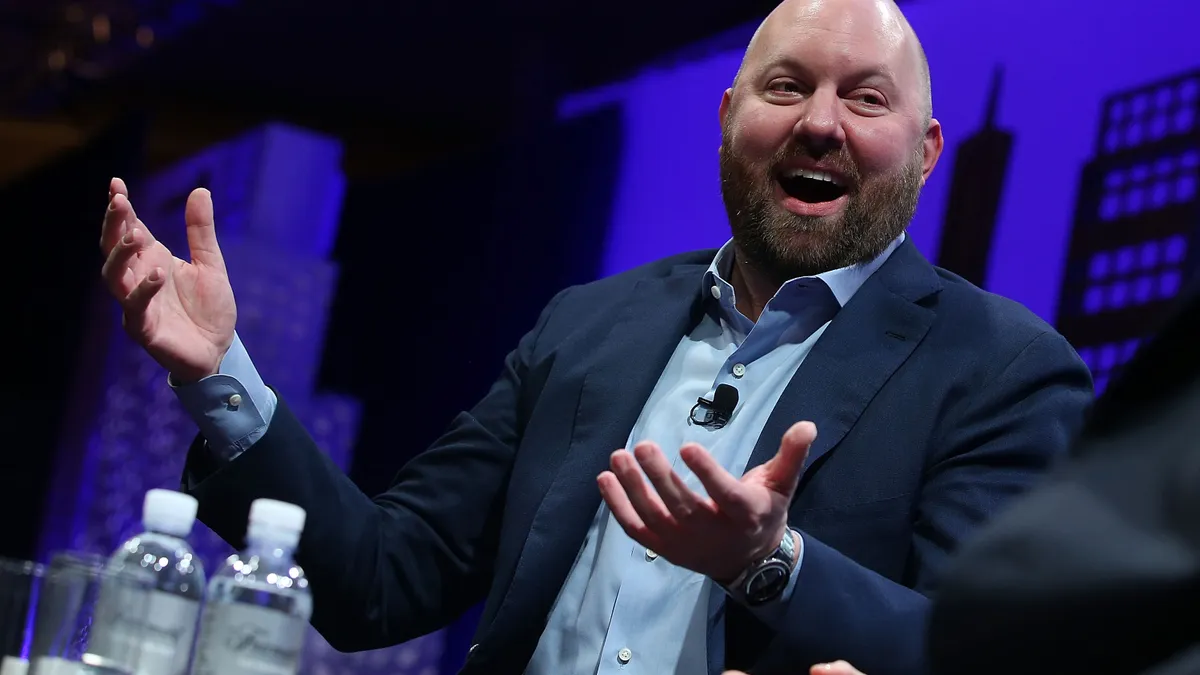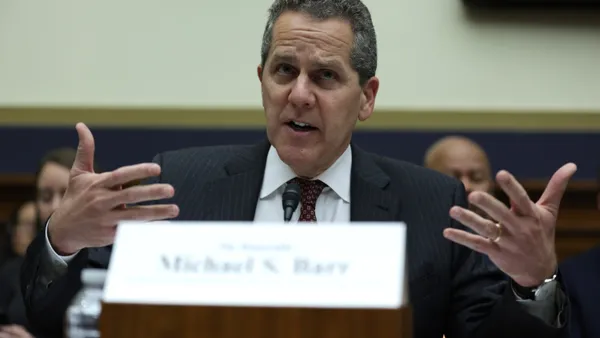Dive Brief:
- Andreessen Horowitz has poached two top architects of Facebook’s Novi digital wallet to work as chief technology officer (CTO) and chief information security officer (CISO) on the venture-capital firm’s crypto team, a16z Crypto.
- Facebook’s blockchain and digital currency project is no stranger to turnover. Morgan Beller, credited as a co-creator of Diem, left her role as head of strategy for Novi in September 2020 to join NFX — like Andreessen, a venture-capital firm, according to CNBC and LinkedIn. Kevin Weil, Novi’s vice president of product, left in April to join Planet Labs, a satellite imagery company, according to his LinkedIn profile.
- This wouldn’t be the first instance this year in which a pair of executives fled a more established market player in tandem to join a more startup-like effort. Omer Ismail — the chief executive at Goldman Sachs’ consumer bank Marcus — and David Stark, the unit’s head of large partnerships, left in late February to join Walmart’s fintech.
Dive Insight:
"We began searching for a world-class security leader to consult with the projects in our portfolio and help our own operations scale in a crypto-native way, and were doubly fortunate to find a pair of them instead," a16z Crypto’s chief operating officer, Anthony Albanese, wrote in a statement announcing the hires of a16z Crypto CTO Riyaz Faizullabhoy and CISO Nassim Eddequiouaq.
Andreessen Horowitz launched a $2.2 billion crypto-focused fund in June, CNBC reported, and its crypto team has grown to 50, including outside advisers. The group has made three dozen investments, including in digital currencies, trading services and other crypto funds, its website said.
"Andreessen Horowitz has shown an impressive dedication to advancing the entire crypto ecosystem over the past decade, and we jumped at the chance to join their premier team and provide technical support to their rapidly-expanding portfolio," Faizullabhoy told CNBC in a statement.
"We'll be advising portfolio companies to help them make sure that they have the most secure and sophisticated systems around," Eddequiouaq wrote on LinkedIn. "I simply cannot wait to support and advise amazing founders who build the future of web3."
Andreessen Horowitz defines web3 as “a group of technologies that encompasses blockchain, cryptographic protocols, digital assets, decentralized finance and social platforms.”
The executive losses hardly represent the first adversity Facebook’s digital currency effort has faced. Lawmakers and regulators warned of the money-laundering potential of the project once called Libra nearly as soon as it was announced in June 2019. Further warnings from U.S. senators may have persuaded several of Libra's original backers, including Visa, Mastercard, Stripe and eBay, to drop out of the Libra Association.
The association scaled back its vision for the crypto project in 2020 in response to regulators' concerns, then rebranded itself Diem (and renamed its wallet Novi, from the original Calibra). But it still found difficulty in its effort to get regulatory approval from Finma, the Swiss Financial Market Supervisory Authority.
The Diem Association in May withdrew its application with Finma for a payments system license, opting instead to move its primary operations to the U.S., where its subsidiary, Diem Networks U.S., sought to register as a money services business with the Financial Crimes Enforcement Network (FinCEN) and run a blockchain-based payment system that allows the real-time transfer of U.S. dollar-backed stablecoins.
Before joining Facebook, Faizullabhoy and Eddequiouaq worked as a founding engineer and engineering lead, respectively, of the crypto platform Anchorage, which this year gained conditional approval from the Office of the Comptroller of the Currency (OCC) for a national trust banking charter.
"They were doing a Facebook wallet," Albanese told CNBC. "I think here, they’re really going to have an opportunity to impact the crypto ecosystem on a very broad scale."












